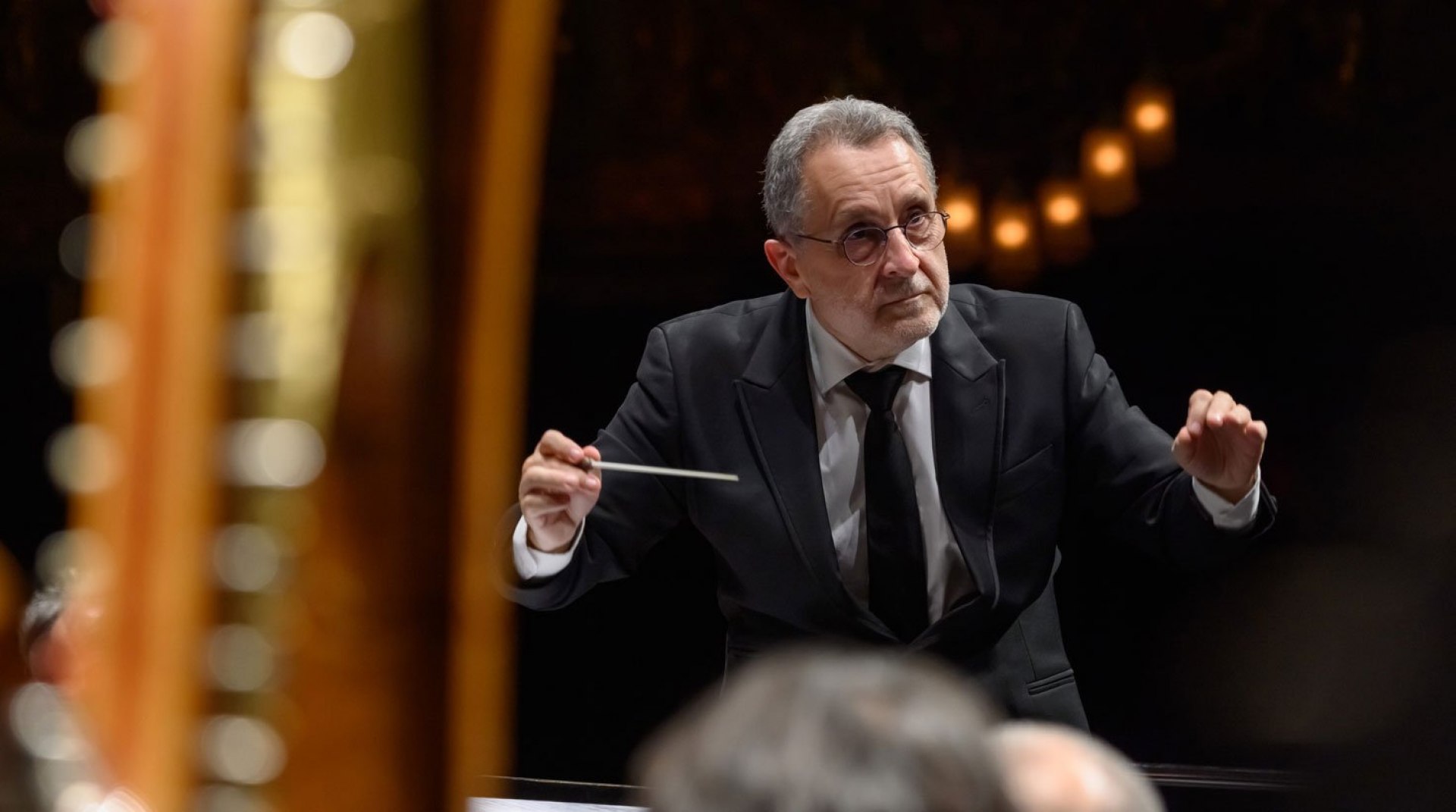A night in Paris with Debussy and Ravel
Mo | Tu | We | Th | Fr | Sa | Su |
Symphonic Cycle of the Gran Teatre del Liceu Orchestra
Commemoration of the 150th anniversary of the birth of Maurice Ravel
The subtlety of capturing a fleeting impression in a specific moment is the essence of the program of impressionist music presented by Josep Pons on this evening. This music seeks to create a sonic image reminiscent of French painting of the time, aiming to convey the mood and atmosphere of a moment to the listener.
The creation and development of this musical semantics feature the artistic tandem Perianes - Pons, two acclaimed performers on the international stage.
The suggestion, the sense of elasticity and rubato, and the experimentation with timbre speak to the importance of the adjective rather than the noun. New sound effects that had a definitive impact on the world of music can be recognized in the works presented in the session.
While Debussy is the most original creator of powerful music that transports us to ancient spaces through dreams with misty music of distant and unpredictable evocations, Ravel is a bold neoclassical composer with expressionistic traits, a master orchestrator, and a meticulous artisan of formal perfection with great expressiveness. A precious session where this dialogue between Debussy and Ravel will result in a subtle interplay between intellect and the deepest effusions of the heart.
Program and cast
Approximate Duration: 1h 15min
PIANO: Javier Perianes
SYMPHONY ORCHESTRA AND CHOIR OF THE GRAN TEATRE DEL LICEU
CONDUCTOR: Josep Pons
Program
C. Debussy: Nocturnes
M. Ravel: Piano Concerto in G major, Daphnis et Chloé (suites I & II)
Gran Teatre del Liceu
Barcelona's opera house, the Gran Teatre del Liceu, was founded on the Rambla in 1847 and has continued over the years to fulfil its role as a culture and arts centre and one of the symbols of the city.
Today it is publicly-owned (by the Government of Catalonia, Barcelona City Council, Barcelona Provincial Council and the Ministerio de Educación, Cultura y Deporte) and administered by the Fundació del Gran Teatre del Liceu which, in addition to the aforementioned bodies, incorporates the Patronage Council and the Societat del Gran Teatre del Liceu (the old society of owners).
Origins: From 1837 to 1847
The Liceu evolved out of the Sociedad Dramática de Aficionados (Society of theatre-lovers) set up in 1837 at the instigation of Manuel Gibert in the former convent of Montsió by members of the National Militia, an organization of armed citizens with liberal leanings.
Barcelona's economy and population were growing fast at the time and the city needed a music conservatory. This led to the conversion of the Sociedad Dramática into the Liceo Filármonico Dramático Barcelonés de S.M. la Reina Isabel II (Barcelona Dramatic and Philharmonic Lyceum of HM Queen Isabel II). In addition to its theatrical activities, the new organization cultivated Italian-style singing and music.
The building on the Rambla
The original building was solemnly opened on 4 April 1847. The plans had been drawn up by Miquel Garriga i Roca, subsequently assisted by Josep Oriol Mestres. The project was funded by selling shares, which meant that many of the boxes and seats were to be privately owned. The shareholders formed the Societat del Gran Teatre del Liceu, known as the “Societat de Propietaris” (Society of Owners), which was in sole charge of running the Gran Teatre del Liceu from 1855 onwards, after it was legally separated from the Conservatori del Gran Teatre del Liceu.
The theatre was operated by impresarios who were given a concession to stage a specific number of productions in exchange for the proceeds from the sale of tickets not reserved for the Societat itself. This system was to endure until 1980.
The creation of the Consortium
By the last quarter of the 20th century this management system was no longer viable. In 1980, to avert the danger of the disappearance of an institution of such worldwide cultural renown, the Generalitat Catalonia's first government in modern times – set up a consortium, the Consorci del Gran Teatre del Liceu, which also incorporated Barcelona City Council and the Societat del Gran Teatre del Liceu. Barcelona Provincial Council joined the Consortium in 1985, followed by the Spanish Ministry of Culture in 1986. From then on the Consortium took over operation of the theatre.

 EN
EN DE
DE IT
IT FR
FR ES
ES RU
RU JP
JP RO
RO
